Mum with Down syndrome son felt shamed after giving birth
Prenatal testing for Down syndrome is standard now, but those who resist are made to feel guilty, as Fiona Place discovered 23 years ago when she gave birth to her son Fraser. She has written a new book to explore the politics of disability in a perfection-seeking world, as her son now excels as an artist.
NSW
Don't miss out on the headlines from NSW. Followed categories will be added to My News.
It was the silence after the birth of her son that has stayed with Fiona Place.
Even 23 years later she remembers it as ‘almost like death’, even though her child was born very much alive.
There was no congratulations, so sighs of relief, no happiness, no pride, no usual buzz that accompanies the miracle of birth. Just silence — and worse — judgment.
“No one said a word until someone said, almost rudely, ‘did you have an amniocentesis?’” Ms Place recalls, still flinching at the “tsk tsk’ tone.

Amniocentesis is a test conducted at 15 weeks into a pregnancy to screen for Trisomy 21, better known as Down syndrome.
MORE FROM JANE HANSEN:
RISING NUMBER OF WOMEN VICTIMS OF SURF RAGE
RESEARCH MAKES YOU A VACCINATION EXPERT. NOT GOOGLE
What she and her husband had done was deliver a child with Down syndrome despite a very effective screening program put in place to eliminate children like him. The floppy, almond-eyed beautiful boy had dodged a bullet and his mother said she was made to feel both guilt and shame.
“I felt blame. How, as an older mother, how did I let this happen and how did two tertiary educated people get themselves in this position,” she said.
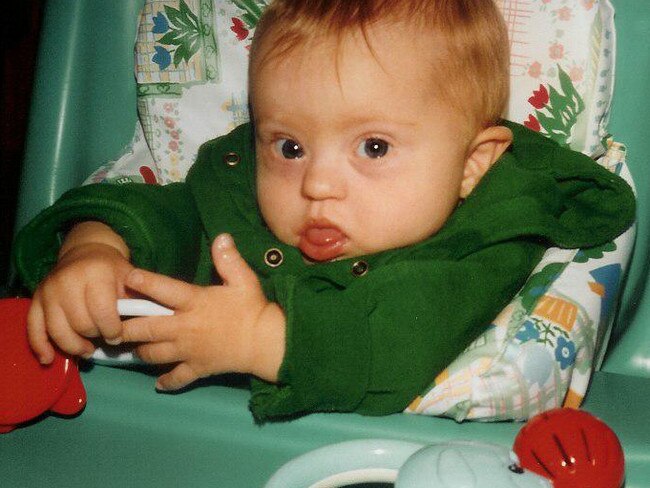
From the moment Fraser was born, she felt the sting of rejection, the unbearable weight of negativity and was constantly reminded of the litany of things Fraser would never do — and it robbed her of enjoying her child.
He experience left such a mark that the Rose Bay mother-of-three has written a new book called Portrait of the Artist’s Mother to explore the politics of disability in a perfection-seeking world.
“What propelled me to write the book was the negativity, women would come up to me and say ‘didn’t you have the test? You must be a fundamentalist Christian’ and trying to come up with a reason as to why Fraser was born despite the pressure to terminate,” she said.
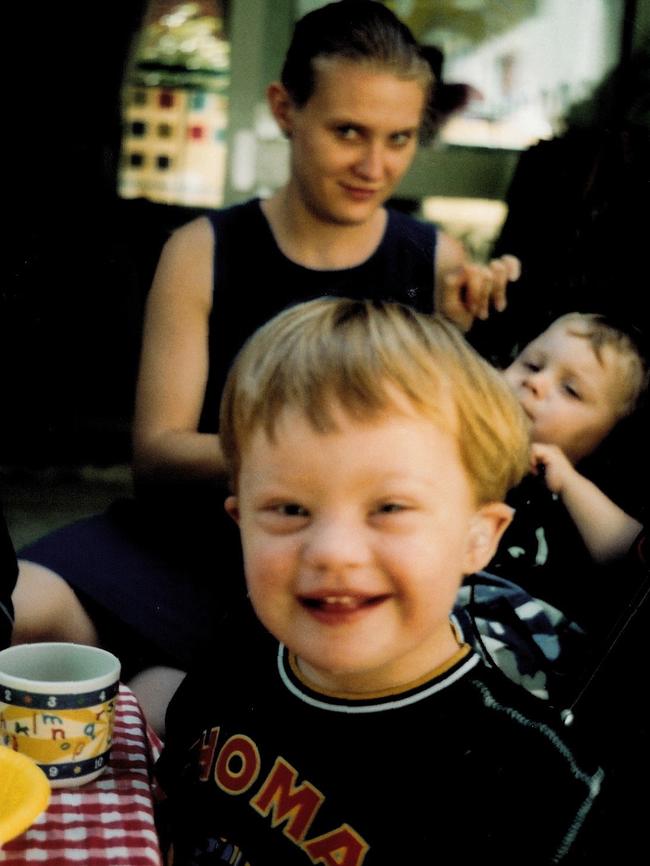
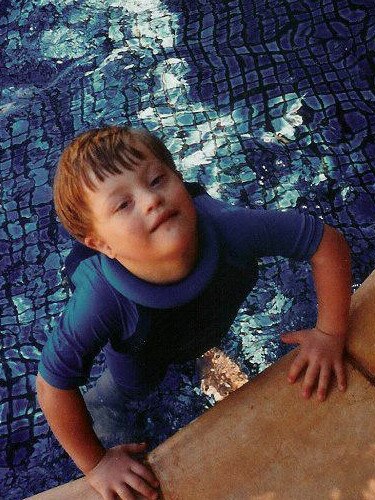
As she describes in her book, she felt she had been “deemed guilty of behaving irresponsibly during pregnancy; of recklessly giving birth to a newborn whose life was bound to be one of tragedy, constant ill-health and relentless suffering”.
It is standard obstetric care nowadays to have a blood test and ultrasound in the first trimester. While most parents embrace this as an opportunity to “make sure everything is OK” and grab a sneak peek at their tiny baby, the reason for the tests is to screen for Down syndrome and offer parents the opportunity to abort an affected foetus.
About 90 per cent do.
Ms Place has no judgment for parents who chose this option but she is blunt about what the screening really is and how few people understand the ethical dilemma they will be confronted with.
“It’s about eradication. The complexities of genetic screening is not black and white,” she said.
“Why narrow it down to one defect when there are 6000 other birth defects, why single out Down syndrome, what is it that is so negative? It’s such a policy of eradication, why are these people targeted?”

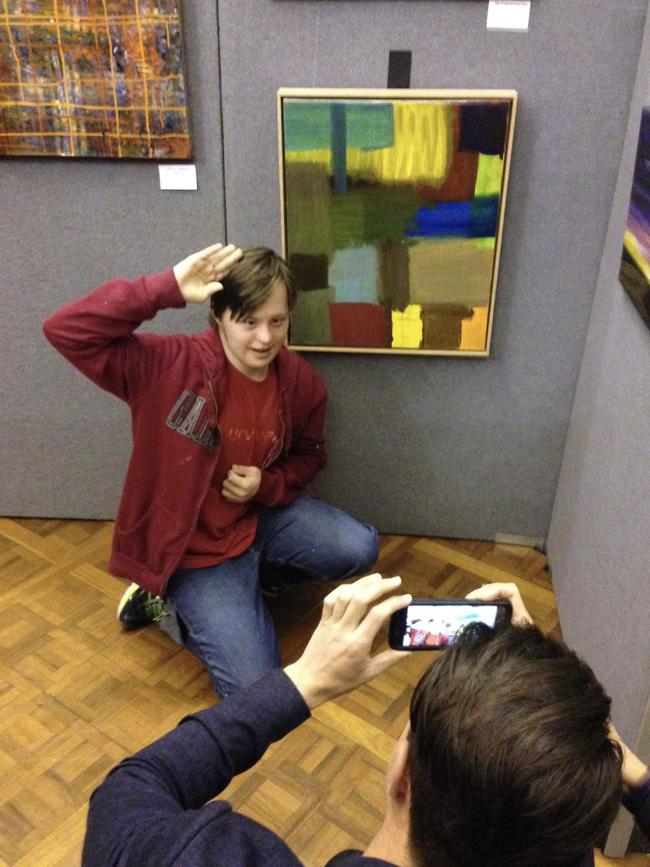
Ms Place and her psychiatrist husband did have the non-invasive screening tests with all three of their pregnancies.
When the second pregnancy blood test showed a one in 120 chance of carrying a child with Down syndrome they were offered an amniocentesis, where a needle is inserted into the baby’s sac to extract fluid for testing.
Amniocentesis does carry a one in 200 risk of losing a perfectly healthy baby, so the couple considered the odds carefully.
“Put simply, the test didn’t engage me. I didn’t want my baby singled out for scrutiny. I didn’t want to insert a needle into his or her home. I couldn’t justify the risks,” she writes.
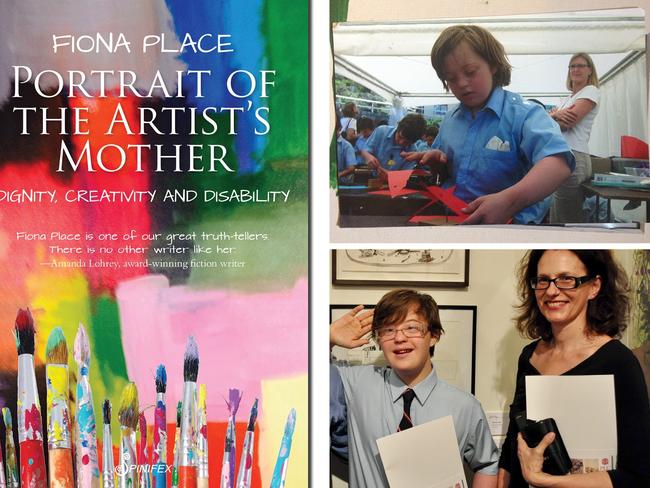
And so Fraser was born with his extra chromosome and, and despite all the negativity, she secretly delighted in her baby.
“Each time I returned back to the NICU (neonatal intensive care unit) I admired my son’s calmness. For no matter how much they poked or prodded his small body, his grace under pressure was remarkable. His ability to settle himself, to compose himself after each and every interruption, was humbling,” she writes.
Like most parents of disabled children, the family fought for services for their child and despite the picture of their life being painted as “indeterminable suffering”, Fraser surprised everyone with a talent for art.

He was singled out as gifted and talented and a curator encouraged her to start getting his career going. At age 13 he was a finalist in the Adelaide Drawing Prize.
“Once other people became excited by Fraser’s achievements that is when having him started to turn into a joyous experience. Parents at the school went from not wanting him there to him being the heart of the school,” Ms Place said.
Fraser has gone on to win many art prizes including the Canberra Art Exhibition in 2015. He has sold works for up to $2500 and is planning his first exhibition.
For Ms Place, he has always had as much right to a rich and rewarding life as anyone else.
“I am incapable of imagining a life without Fraser. Incapable of imagining my life could be better without him. I love Fraser. Adore Fraser. Moreover, I consider it a privilege to have been chosen to be his mother.”
* Portrait of the Artist’s Mother by Spinifex Press is available in all good bookstores.
Originally published as Mum with Down syndrome son felt shamed after giving birth


